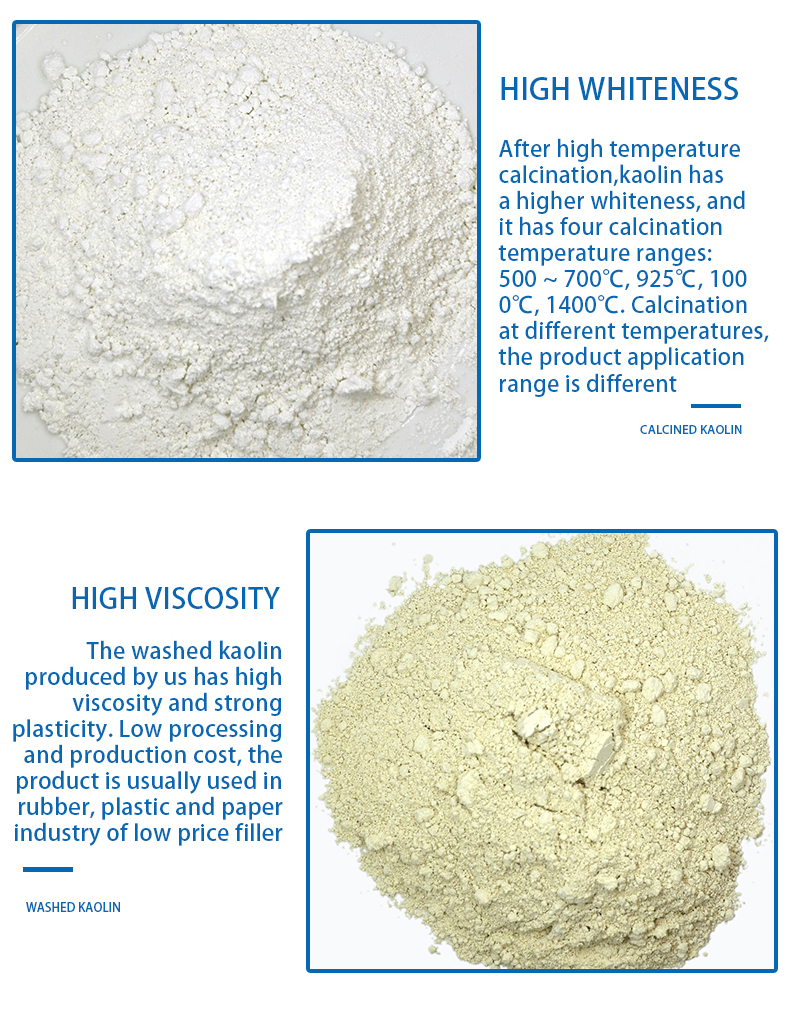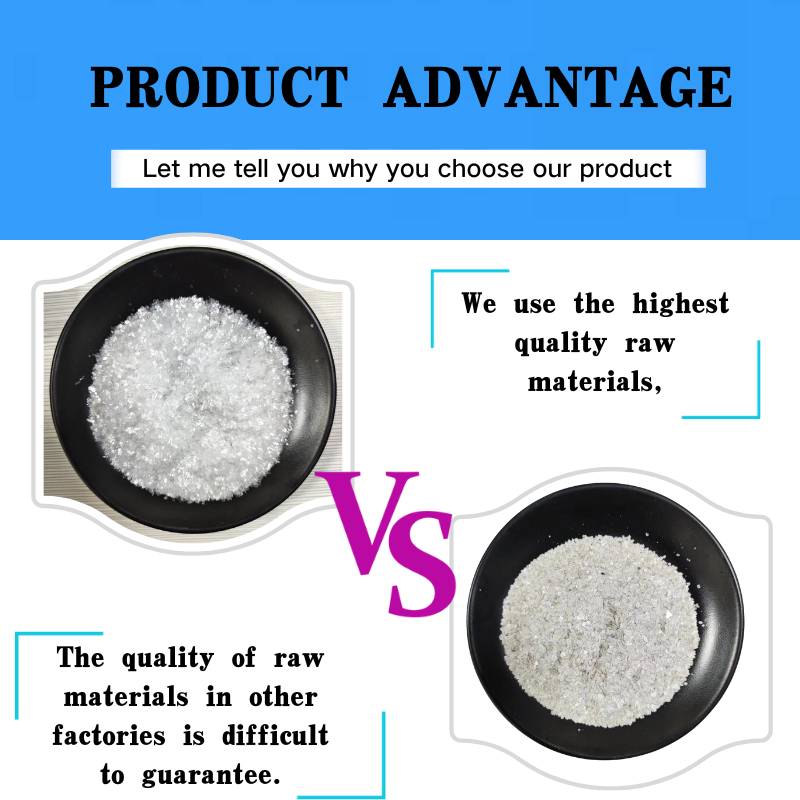
High Quality Granular Bentonite Clay Supplier - OEM Sodium Bentonite Manufacturer in China
- Overview of granular bentonite clay
and its industrial relevance - Key technical advantages and performance indicators
- Comparison of leading china granular bentonite clay manufacturer and OEM granular sodium bentonite clay factories
- Tailored OEM solutions available for diverse industries
- In-depth analysis of application cases supported by quantitative data
- Critical factors in selecting a reliable granular bentonite clay supplier
- Final insights on granular bentonite clay for future industry demands

(granular bentonite clay)
Introduction: Emerging Value of Granular Bentonite Clay in Modern Industry
Granular bentonite clay has become an essential element in a diverse range of industrial applications due to its exceptional absorption, sealing, and detoxification capabilities. Its unique physico-chemical attributes have paved the way for critical uses in sectors such as civil engineering, environmental remediation, agricultural improvement, drilling fluids, construction waterproofing, and pet care products. As demand intensifies for more effective, sustainable, and environmentally compliant solutions, industries increasingly explore high-quality sources of granular bentonite clay, with particular focus on Chinese manufacturing expertise and OEM development. This examination delves into technical data, supplier profiles, customization methods, and best-in-class application practices, providing a 360° view of the market and performance landscape.
Technical Superiority: Performance Indicators of Granular Bentonite Clay
The effectiveness of granular bentonite clay is backed by metrics such as swelling index, cation exchange capacity, particle size uniformity, and moisture content. Industrial-grade sodium bentonite, which dominates global supply, offers outstanding swelling rates—often exceeding 24 times its original volume—vital for sealing and containment functions. In civil construction and landfill engineering, granular types display permeability coefficients as low as 1.0×10−11 m/s, ensuring robust waterproofing layers. Here is a summary table of benchmark data for high-grade granular bentonite clay:
| Parameter | Typical Value (Industrial Grade) | Reference Value (Lower Grade) |
|---|---|---|
| Swelling Index (mL/2g) | 24–30 | 14–18 |
| Cation Exchange Capacity (meq/100g) | 80–100 | 60–65 |
| Particle Size (μm) | 0.5–2.0 | 2–8 |
| Moisture Content (%) | <8 | 8–15 |
| Permeability Coefficient (m/s) | ≤1.0×10−11 | 1.0×10−8–1.0×10−10 |
These metrics establish granular sodium bentonite clay as a high-value material for barrier, binding, and purification functions, addressing more demanding technical requirements than conventional clays or sealing materials.
Comparative Analysis: China Granular Bentonite Clay Manufacturer vs. OEM Factories
The global bentonite market is largely driven by suppliers from Asia, with China leading both in production scale and product diversification. Distinctions between a dedicated china granular bentonite clay manufacturer and OEM granular sodium bentonite clay factory/ies are crucial to end-users pursuing consistent, customizable solutions. Manufacturers typically emphasize proprietary technology, mine-to-market control, stringent QC, and established domestic and export networks. In contrast, OEM facilities are geared toward flexibility, private label packaging, and formulation adaptation to third-party specifications. The comparative data below highlights key evaluation benchmarks:
| Attribute | China Granular Bentonite Clay Manufacturer | OEM Granular Sodium Bentonite Clay Factory |
|---|---|---|
| Quality Control Systems | Full in-house testing, ISO 9001/14001 certified, direct traceability from mining | 3rd-party QC on order, batch-based inspection, meets partner’s branded specs |
| Production Volume (MT/year) | >100,000 | 30,000 – 80,000 |
| Customization Capability | Moderate (grades, granule size) | High (formulation, granule size, packaging, branded labels) |
| Export Market Experience | Asia, Europe, Americas, Middle East, Africa | North America, Europe, Middle East |
| Delivery Speed | <15 days for standard grade | 10–30 days (depends on custom requirements) |
| Certifications | ISO/REACH/SGS passed | ISO-certified; customized compliance on request |
When evaluating OEM granular sodium bentonite clay factories, factors such as R&D support, branding flexibility, and overseas logistics play a central role, whereas traditional manufacturers focus on production scale, price competitivity, and consistent quality grade delivery.
Customized OEM Solutions: Meeting Complex Market Demands
The adaptability of OEM granular sodium bentonite clay factories has transformed industry approaches to customer specifications. These factories invest in high-shear mixers, multi-size granulation systems, and rapid batch testers to accommodate specification changes in real-time—serving custom needs from waterproofing membranes and oilfield drilling additives to agriculture-grade binders and even pet litter variants. Approximately 70% of global buyers now seek private-labeled granular bentonite solutions, reflecting expanded demand in differentiated markets. This flexibility enables tailored properties such as variable granule size (0.5–4 mm), customized absorption rates, dust-suppressed blends, and function-specific additives (e.g., odor-control agents, nutrient carriers). The transition to customer-centric, OEM-driven production maximizes each user’s product value, reduces time-to-market, and streamlines certification processes for overseas compliance.
Case Studies: Proven Applications & Quantitative Performance
Application scenarios for granular bentonite clay illuminate the material’s strength in both technical and sustainability terms. Several high-impact cases are outlined below:
| Industry | Application | Results | Key Data/Improvements |
|---|---|---|---|
| Landfill Engineering | Barrier/Sealant in Geosynthetic Clay Liners (GCL) | Achieved zero seepage for >5 years | Permeability coeff. <1.0×10−11 m/s Swelling index: 28 mL/2g |
| Drilling Fluids | Viscosity and filtration agent for oil/gas wells | Reduced fluid loss by 35% | Yield point: 45–50 lb/100ft2 Filtrate loss: <10 mL/30min |
| Civil Construction | Waterproofing for tunnels, basements | Extended structure life by 15+ years | Tensile strength: 2.1 MPa Moisture resistance: >98% |
| Agriculture | Carrier for fertilizers, soil amendment | Improved crop yield by 12% | Nutrient retention: >85% over 60 days |
| Pet Hygiene | Organic, high-absorbency cat litter | Consumer satisfaction rate: 92% | Absorption: 300% water weight Odor control: 72 hours effectiveness |
These results demonstrate the direct financial, operational, and environmental gains achieved by specifying premium-grade granular bentonite clay across sectors.
Supplier Selection: Critical Aspects for End-users
For buyers, the choice between a prominent china granular bentonite clay manufacturer and a specialized OEM granular sodium bentonite clay factory comes down to application requirements, order volume, customization flexibility, and ongoing technical support. Transparent sourcing, quality registrations, and a documented track record of successful exports are vital. When seeking long-term partners, it is essential to assess the supplier's vertical integration (from mining to final dispatch), quality assurance processes, warehousing and shipment capabilities, and post-sale technical service provision. Most importantly, prompt adaptation to regulatory changes (such as ISO/REACH for Europe, ASTM for the U.S.) signals a future-proof supply chain ready to serve evolving global markets.
Conclusion: Future Outlook of Granular Bentonite Clay in Industrial Solutions
In summary, granular bentonite clay continues to revolutionize industrial performance standards, aligning with increasing demands for sustainability, reliability, and specialization. With China’s manufacturing sector and OEM granular sodium bentonite clay factories intensifying their technical and service propositions, global industries access a broader, customized spectrum of bentonite products. Decision-makers are encouraged to leverage comparative performance data, engage in collaborative customization, and select suppliers with demonstrated export and technical support expertise. As regulations tighten and market requirements evolve, granular bentonite clay will steadily expand its influence as a cornerstone material across a multiplicity of applications, driving innovation and enhanced value for years to come.

(granular bentonite clay)
FAQS on granular bentonite clay
Q: What is granular bentonite clay used for?
A: Granular bentonite clay is primarily used for sealing, waterproofing, and drilling applications. It efficiently absorbs water and forms a protective barrier. This makes it ideal for environmental, construction, and industrial projects.Q: How can I find a reliable China granular bentonite clay manufacturer?
A: Look for manufacturers with certifications, positive client testimonials, and transparent supply chains. Request product samples and technical data sheets before placing large orders. Comparing multiple suppliers can ensure the best quality and pricing.Q: What services do OEM granular sodium bentonite clay factories offer?
A: OEM factories can customize granular sodium bentonite clay products according to client specifications. They offer formulation adjustments, packaging options, and private labeling. This flexibility supports tailored solutions for diverse industry needs.Q: Are OEM granular sodium bentonite clay factories able to handle large-scale orders?
A: Yes, most OEM granular sodium bentonite clay factories are equipped for bulk production. They maintain robust manufacturing processes to ensure consistency and timely delivery. Confirm their production capacity in advance for your specific requirements.Q: What is the difference between regular and sodium granular bentonite clay?
A: Sodium granular bentonite clay has higher swelling and sealing properties compared to regular bentonite. This makes it more effective for waterproofing and containment projects. Choosing the right type depends on your specific application needs.Share
-
Premium Perlite for Cactus Custom & OEM Perlite Manufacturer SolutionsNewsJul.08,2025
-
High Quality Granular Bentonite Clay Supplier - OEM Sodium Bentonite Manufacturer in ChinaNewsJul.08,2025
-
High-Quality Mica Powder for Epoxy Resin Custom & OEM Manufacturer Factory SupplyNewsJul.08,2025
-
Custom Ceramic Particle Manufacturer & Factory High-Quality Ceramic Particle SolutionsNewsJul.07,2025
-
Custom Aluminium Oxide Grains Manufacturers & Factories High Quality SolutionsNewsJul.07,2025
-
Premium Clay Pebbles for Gardening - Custom Solutions from Leading Manufacturers & FactoriesNewsJul.07,2025






